Since childhood, Lakshmi has worked in the Gulf of Mannar as a seaweed harvester, a subsistence living for many of the women of her community. In 2002, that livelihood came under threat as the government, in a well-meaning but poorly implemented action, began enforcing a marine reserve in their traditional harvesting grounds. The women's boats and even food and water were confiscated, sometimes by corrupt officials who demanded bribes.
In 2014, Lakshmi helped organize the displaced workers into a federation, of which she became president. After a long period of negotiation with government representatives, NGOs, and conservation scientists, the government agreed to recognize the Gulf of Mannar seaweed collectors as a unique group of women fishers and issued them biometric ID cards, to protect them from harassment by officials. They are now free—within the restrictions they themselves have imposed—to safeguard the resource and to pursue their livelihood.
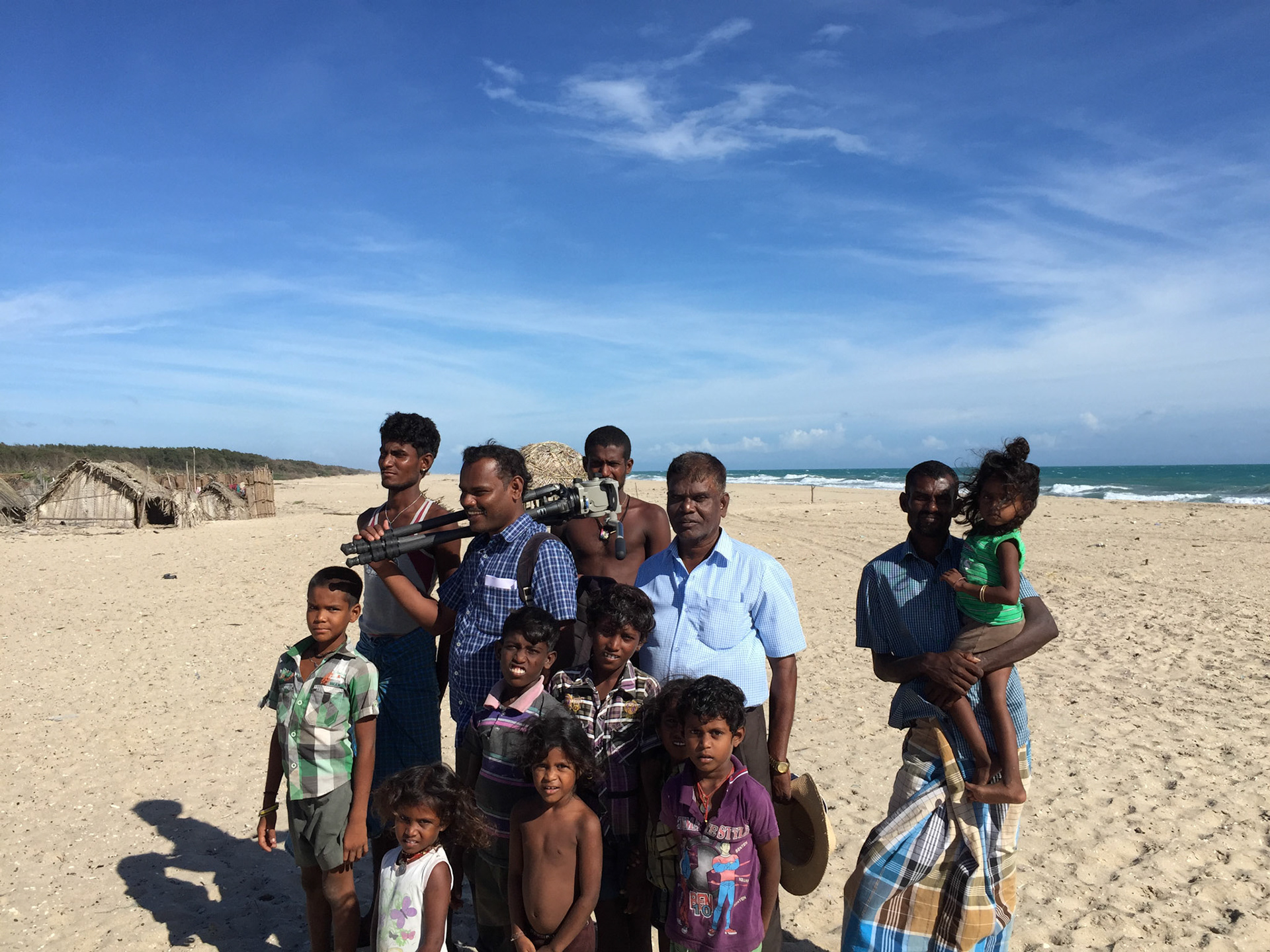
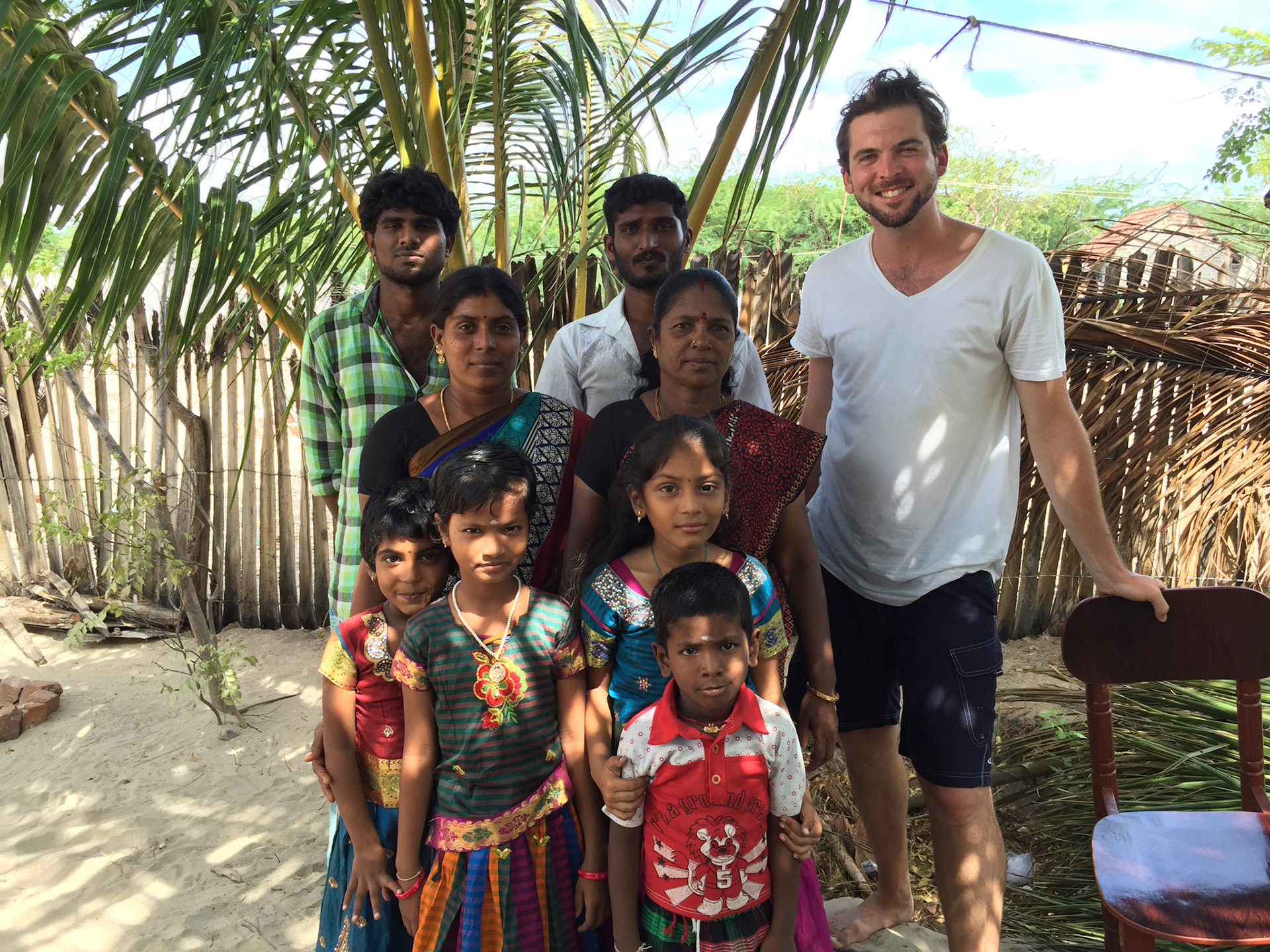
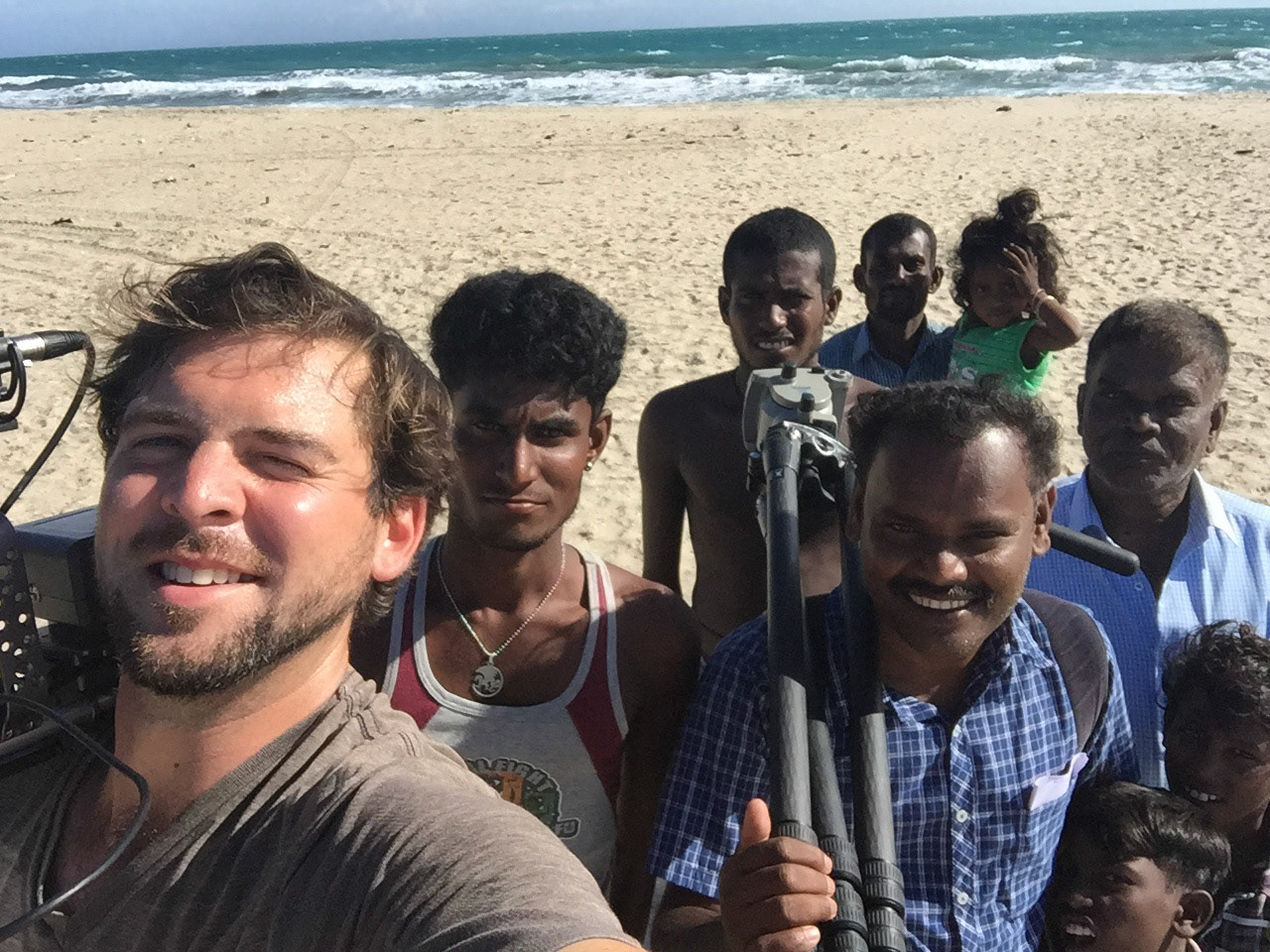
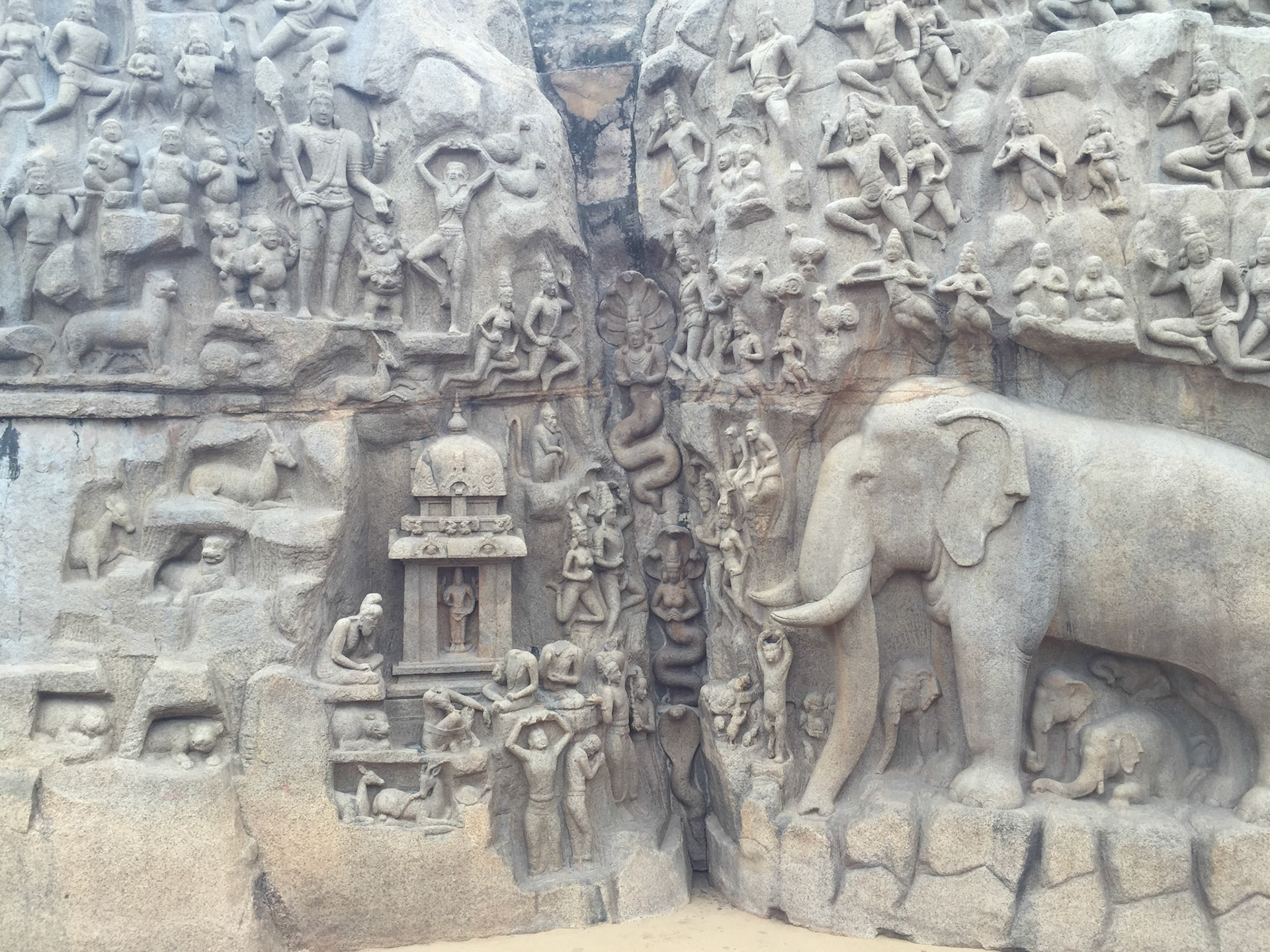
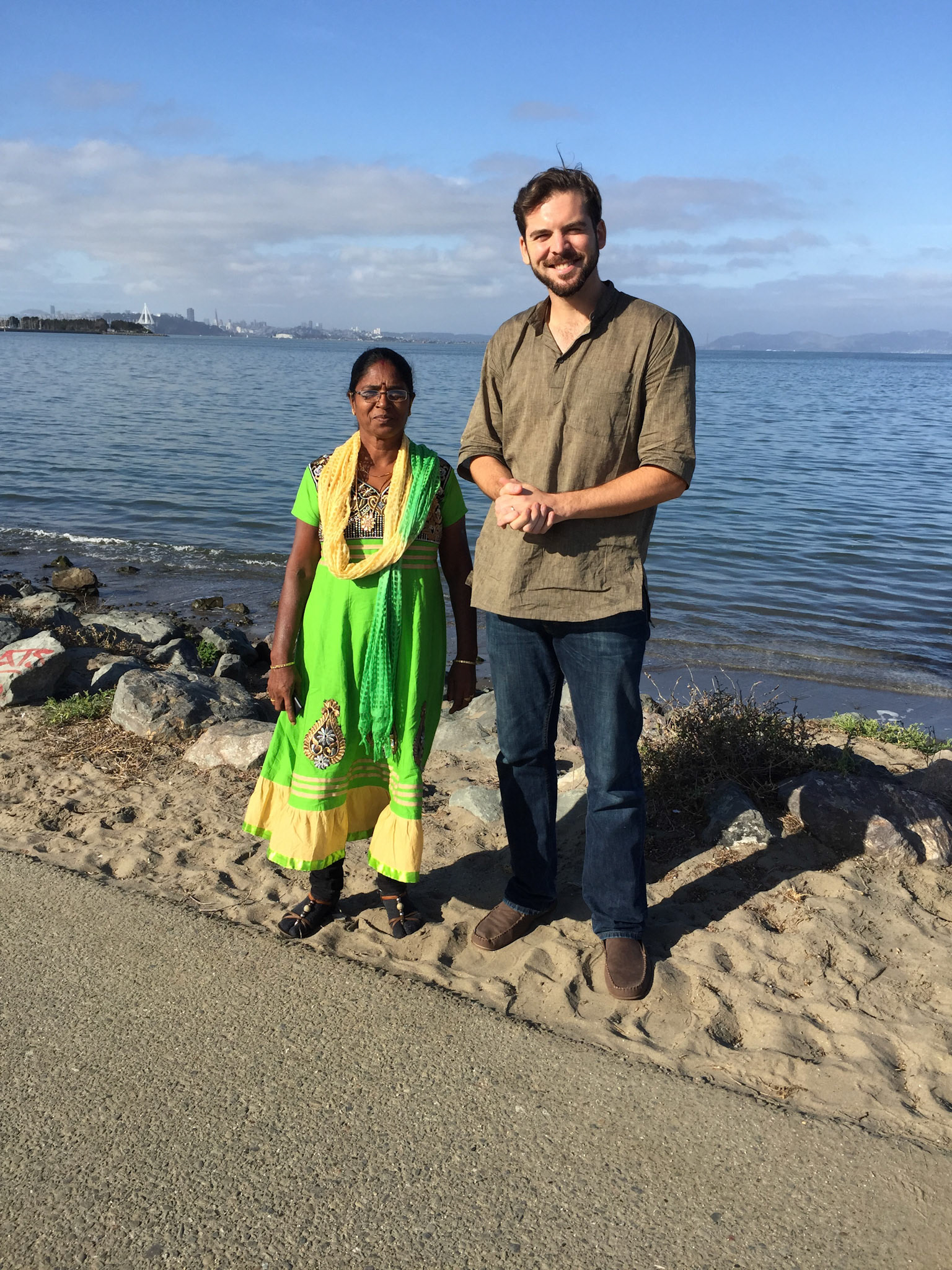
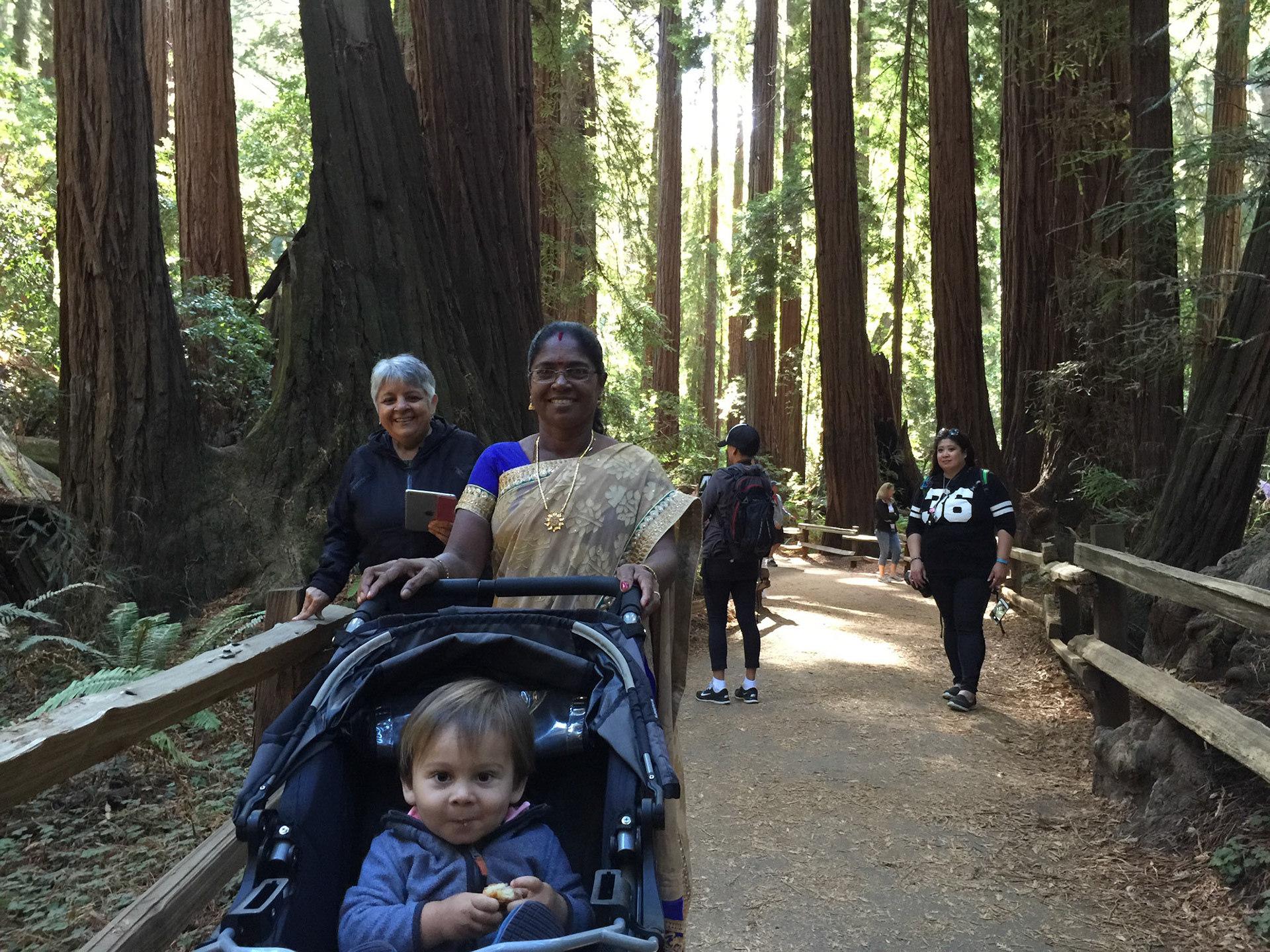
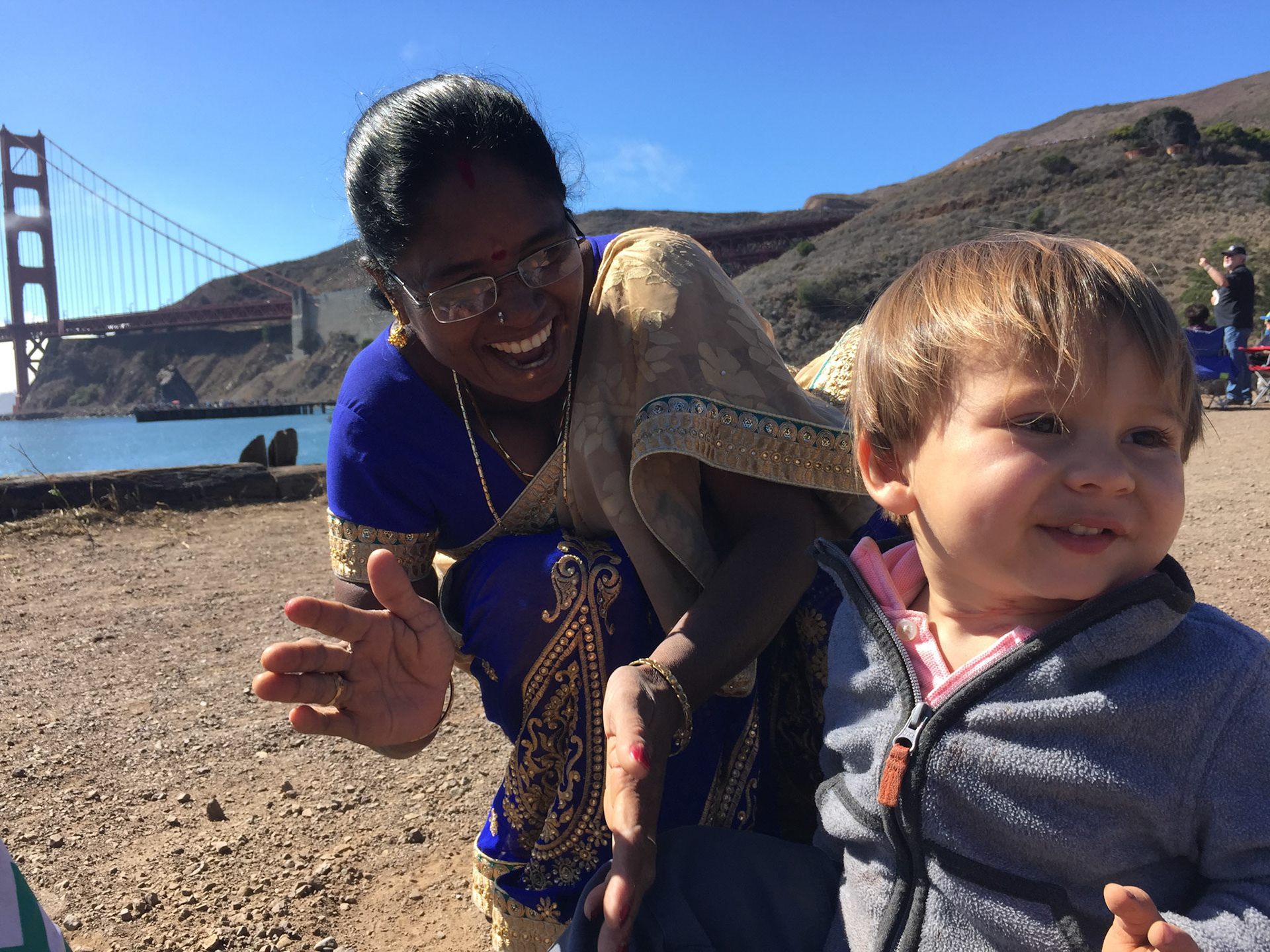
Lakshmi came to the San Francisco Bay Area to receive the prestigious Seacology Prize for island conservation, for which recipients also receive $10,000. She vowed in her acceptance speech to split the money evenly with all families in her village.
Lakshmi then visited me at my home in Oakland. She wanted to meet my son and then go see the redwoods. So she, field producer Vineeta Hoon, my son and I went over to Muir Woods together.